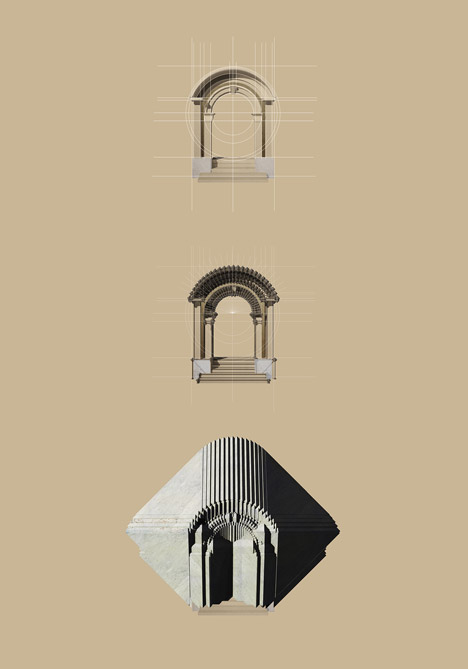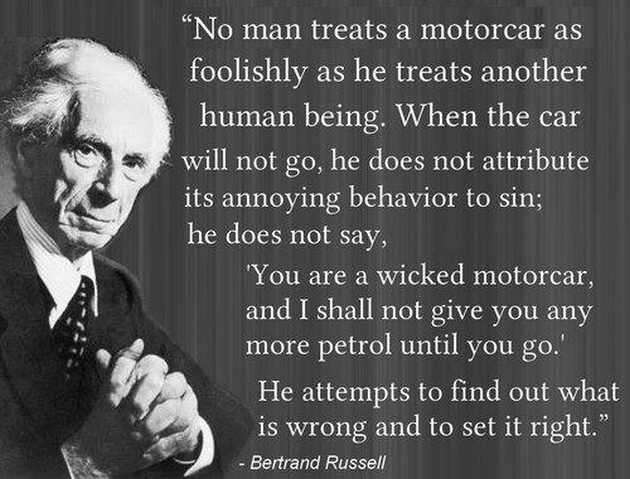With an increasing number of Americans leaving religion behind, the
University of Miami received a donation in late April from a wealthy atheist to endow what it says is the nation’s first academic chair “for the study of atheism, humanism and secular ethics.”
The chair has been established after years of discussion with a $2.2 million donation from
Louis J. Appignani, a retired businessman and former president and chairman of the modeling school Barbizon International, who has given
grants to many humanist and secular causes — though this is his largest so far. The university, which has not yet publicly announced the new chair, will appoint a committee of faculty members to conduct a search for a scholar to fill the position.
“I’m trying to eliminate discrimination against atheists,” said Mr. Appignani, who is 83 and lives in Florida. “So this is a step in that direction, to make atheism legitimate.”
Religion departments and professors of religious studies are a standard feature at most colleges and universities, many originally founded by ministers and churches. The study of atheism and secularism is only now starting to emerge as an accepted academic field, scholars say, with its own journal, conferences, course offerings and, now, an endowed chair.
“I think it’s a very bold step of the
University of Miami, and I hope there will be others,” said
Richard Dawkins, an evolutionary biologist and atheist luminary who is the author of “
The God Delusion.”
“It’s enormously important to shake off the shackles of religion from the study of morality,” Mr. Dawkins said in a telephone interview from his home in Britain.
The percentage of Americans who claim no religious affiliation has risen rapidly in a short time, to 23 percent of the population in 2014, up from 16 percent in 2007, according to a
report by the Pew Research Center. Younger people are even less religious, with 35 percent of millennials saying they identify as atheist, agnostic or with no religion in particular.
Secular Americans are beginning to organize themselves politically. Next month, nonbelievers are headed to Washington to lobby Congress and hold a “
Reason Rally” at the Lincoln Memorial to showcase their numbers and promote the separation of church and state.
With atheists still often stigmatized and disparaged in this country, it took some persuading for the University of Miami to agree to create a chair with the word “atheism” in the title, according to
Harvey Siegel, a professor of philosophy who has helped to broker the arrangement. He said that more than 15 years ago, when he was chairman of the philosophy department, he and Mr. Appignani first began discussing the idea for a chair to study atheism and secularism.
“There was great reluctance on the part of the university to have an endowed chair with the word ‘atheism’ in the name, and that was a deal-breaker for Lou,” Mr. Siegel said. “He wasn’t going to do it unless it had the word atheism in it.”
The university had reason to be cautious, Thomas J. LeBlanc, executive vice president and provost, said in an interview.
“We didn’t want anyone to misunderstand and think that this was to be an advocacy position for someone who is an atheist,” he said. “Our religion department isn’t taking an advocacy position when it teaches about Catholicism or Islam. Similarly, we’re not taking an advocacy position when we teach about atheism or secular ethics.”
Asked whether he anticipated any backlash, Mr. LeBlanc said: “This is an area where people can get overly excited if they don’t actually look carefully at what’s happening. The idea that there are nondeity approaches to explaining our surroundings is not controversial in the academy.”
Mr. Appignani said he rejected a last-minute proposal from a dean to call it a chair in “philosophical naturalism.” Instead, he and the university leaders worked out the title, broadening the scope by including humanism and secular ethics.
Mr. Appignani was raised a Roman Catholic in the Bronx by Italian immigrant parents. His father was a clothing presser in the garment district. He attended Catholic schools and said he became a nonbeliever at the City College of New York when he discovered the work of Bertrand Russell, the British philosopher and
Nobel Prize winner.
With the money he made from the Barbizon school, he said, he created the foundation that has given grants to groups like the
American Humanist Association and the
Secular Coalition for America, and the Appignani Humanist Legal Center.
Over the years, Mr. Appignani has sponsored two public lectures by Mr. Dawkins at the University of Miami. The discussions about a chair gained momentum last year with the arrival of a new university president,
Julio Frenk, Mr. Siegel said.
Dr. Frenk announced that he intended to recruit new talent by creating 100 new chairs in time for the university’s centennial anniversary, in 2025, said Margot S. Winick, an assistant vice president at the university. The chair in atheism is the fifth he has added so far, she said.
Pitzer College, a liberal arts school in Southern California with about 1,000 students, became
the first to begin a program and major in secular studies five years ago.
Phil Zuckerman, a sociologist of religion who founded the program, said it now offered four courses on secularism of its own and many others by the six professors associated with the department. Only two students have chosen to major in secular studies, he said, but the courses are popular. For its “Secularism and Skepticism” class last year, he turned away 25 students, more than the 22 he was able to admit.
Scholars have formed a “
Nonreligion and Secularity Research Network,” which is holding its fourth conference this summer in Zurich. A peer-reviewed journal, “
Secularism and Nonreligion,” is now up and running.
“There is a real need for secular studies,” Mr. Zuckerman said. “As rates of irreligion continue to rise, not only here in the U.S.A. but all over the world, we need to understand secular people, secular culture, and secularism as a political and ideological force.”















